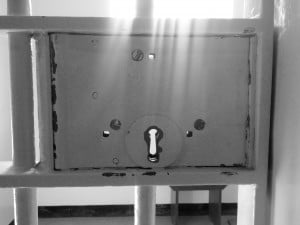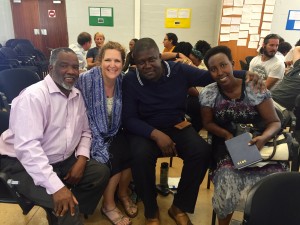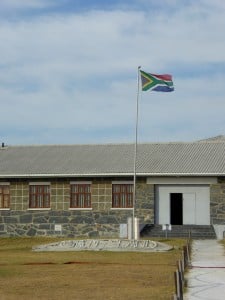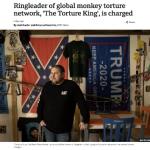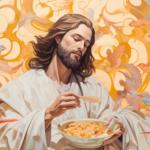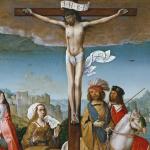As the reports and tributes about Joan Rivers poured in last week, I was particularly struck with the fact that she is remembered for her honesty. Writer after writer commented that her gift was naming the absurdity and tragedy of life.
The New Yorker reported that a few years ago, at a comedy club in Wisconsin she did a bit about Helen Keller and a heckler complained that his son was deaf and he didn’t think it was appropriate. Joan’s response? “Let me tell you what comedy is about. … Comedy is to make everybody laugh at everything and deal with things.” Her response is cold but there’s a level of truth in it. Life is not fair and it often doesn’t make sense. There are things that happen to us that are devoid of meaning.
I have a core belief that any good religious belief has to have an honest theology of good things happening to bad people. In seminary I took an entire class on God and Human Suffering and if I were creating a curriculum for seminary coursework, I would require every student to take a course like that. You can skate by in good times with the idea that “everything happens for a reason.” But when a child is born with a disability, when a 22 year old son drops dead of a heart attack while out for a jog, when a plane flies into the World Trade Center, when women and children are without legal representation and proper services on our border, when we are in our 13th year of war, you gotta have a better response to tragedy and trauma than “Everything happens for a reason.” That just doesn’t work.
So, I appreciate Joan Rivers because she named the tragedy of life and held us accountable to being honest about that. She named that sometimes it feels as if our choice is between either denial or despair.
What Joan Rivers seemed to miss was that in the midst of the tragedy and the meaningless, there is profound beauty and deeper meaning. Just a walk outside, or a true connection with another person or looking into the face of a newborn child reminds us that there is a deep down goodness in this world, that the battles of nations, the problems of our lives while significant, lose their weight in a world that insists on an ongoing beauty and persistent cycles of life. It’s a dilemma for any honest soul. What is the nature of reality? How do I live in the face of both tragedy and beauty?
Much of the Bible is written in times of great tragedy. It’s written by people in occupied territories, people who have been displaced from their homes, people who are victims of the cycles of empire. Life is not working for them and everything feels jumbled. In response, they search for meaning beyond their present circumstances. What is this world really all about? Is there meaning beyond our struggle? Where is God?
This is where many of the creation stories in Scripture come from. Yes, many creation stories. There are two in Genesis – chapters 1 and 2 but there is also creation accounts and references in Job, Psalms, Proverbs, the Gospels and even in Paul’s letters.
The impulse behind creation stories reminds me of what happens when I lose something valuable. After making a surface search for it, I start cleaning. I don’t necessarily look for what’s missing but I feel like if I can get to the bottom of the piles and the dirt in my house, I’ll find what I’m looking for. Sometimes I don’t find the things I lost but I achieve a rebalancing and fresh view. Creation accounts are that cleaning and looking for the core beliefs and foundations of the world that allow people caught in the tragedy of life to find a new way forward.
As the creation stories unfold, we see a congruence and flow. God made the world and it was – wow! – speechlessly good. And what’s more – God is not removed from our world but fully present to creation.
Here is a compilation of Genesis 1,2, Proverbs 8 and John 1 put together:
From Genesis 1… In the beginning when God began to create the heavens and the earth, the earth was a formless void and darkness covered the face of the deep, while a wind from God swept over the face of the waters. Then God said, “Let there be light”; and there was light.
John 1… In the beginning was the Word, and the Word was with God, and the Word was God. He was in the beginning with God. All things came into being through him, and without him not one thing came into being. What has come into being in him was life, and the life was the light of all people. The light shines in the darkness, and the darkness did not overcome it.
Proverbs 8… (I am Lady Wisdom.) Ages ago I was set up,
at the first, before the beginning of the earth.
When there were no depths I was brought forth,
when there were no springs abounding with water.
Before the mountains had been shaped,
before the hills, I was brought forth—
when he had not yet made earth and fields,When he established the heavens, I was there,
when he drew a circle on the face of the deep,
when he made firm the skies above,
when he established the fountains of the deep,
when he assigned to the sea its limit,
so that the waters might not transgress his command,
when he marked out the foundations of the earth,
then I was beside him, like a master worker;
and I was daily his delight,
rejoicing before him always,
rejoicing in his inhabited world
and delighting in the human race.Genesis 2… In the day that the LORD God made the earth and the heavens, when no plant of the field was yet in the earth and no herb of the field had yet sprung up—for the LORD God had not caused it to rain upon the earth, and there was no one to till the ground; but a stream would rise from the earth, and water the whole face of the ground—then the LORD God formed man from the dust of the ground, and breathed into his nostrils the breath of life; and the man became a living being.
John 1… And the Word became flesh and lived among us, and we have seen his glory, the glory as of a father’s only son, full of grace and truth. (John testified to him and cried out, “This was he of whom I said, ‘He who comes after me ranks ahead of me because he was before me.’”) From his fullness we have all received, grace upon grace. The law indeed was given through Moses; grace and truth came through Jesus Christ. No one has ever seen God. It is God the only Son, who is close to the Father’s heart, who has made him known.
Do you hear echoes of Genesis and of Proverbs in what John wrote? John is looking back onto the texts that he knows – the way the Hebrew Scriptures understood the creation of everything and sees a congruence between that creating energy – God along with the Lady Wisdom, Sophia – and what was experienced in Jesus. It’s like he is looking at what was experienced in Jesus and saying, “That’s what we’ve been trying to name for all this time!” Jesus embodied this reality of God that we recognize being present in the very DNA of the universe.
The question that is answered in Jesus is that God is not necessarily OUTSIDE of us, working everything out and making it all come out just perfectly but God is IN the world, WITH us in the midst of the meaning and the tragedy.
“God is at home, it’s we who have gone out for a walk,” said Meister Eckhart. The Word became flesh and dwelt among us.
We walk away from God into memories of the past – glorifying another time or place as the time when God was really present and we spend time longing for that time again. Leads us to either nostalgia or regret or playing a victim for too long.
We walk away from God into the future – imagining a time when everything will be wrapped up and will make sense.
Theologian Catherine Keller says that we have an addiction to the future. She calls out the tendency of religion to put our hopes on the future and assume that the end of the world has to come for God to show up. We want solutions and action and so we jump to the future, not allowing ourselves to be in the present. Not only does this get us off the hook from having to do anything in this moment, it prevents us from experiencing the reality of God here in this moment.
The Word is made flesh in those who stay with the present moment, believing, sometimes beyond belief, that the creative, loving force of God is active and present. This is present in people like Salim Munayer, who directs an organization working for reconciliation between Israel and Palestine (kind of a thankless job right now) who said this recently.
Right now, our challenge is to hold on to hope. Hope is the refusal to accept the current destructive reality. When we continue to talk about reconciliation, we continue to embrace hope. We continue to believe in the possibility of a better present. We want to speak peace, seek peace, and maintain our hope.
There is someone who refuses to deny reality or despair of it but to stay active in the present, believing God is still working in one of the most difficult situations in our world.
The Word became flesh and dwelt among us so that we do not have to accept the current destructive reality as the final tragic answer. We can choose a different narrative for our life. The Word became flesh to show us that Wisdom, Beauty, and Love is in the very foundations of our world and we can live in that reality even in the face of the most desperate circumstances.
Despair is easy. Denial is easy. Living in the presence of a God who is with us takes some work, particularly when the headlines are as bleak as they are right now. It is hard to keep hoping as the bomber engines begin to roar. It is hard to love someone who has hurt us. It is hard to see the face of God in our enemy. It is not easy but it is where God meets us. The Word became flesh and we have seen God’s glory – full of grace and truth.
If you’re wondering how God can be incarnated into this world through you – Grace and Truth are your clues. When we live in Grace – recognizing our lives and each moment as a gift that we could never earn – and we live in truth – not falling into either denial or despair but walking the line right between them – we are lead into the present and give us a meaning that goes beyond the headlines of the day into the very structure of the universe. Grace and truth take us home to God when we’ve gone out for a walk. When we live in grace and truth, we participate with the creative power of God in this world and stay present.
Maybe the real miracle of creation is not that anything was made but that God remains – embedded in all that is, sticking it out with us in this story.
And we are invited to stick it out with God – to stay right here, right now where the Word of God is being made flesh and be willing to allow God to be made in flesh ourselves.







